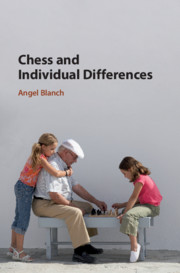Book contents
- Frontmatter
- Contents
- List of Figures
- List of Tables
- Preface
- Acknowledgements
- 1 Introduction
- 2 Quantifying Chess Skill
- 3 Cognition
- 4 Individual Differences
- 5 Psychophysiology and Brain Functioning
- 6 Intelligence
- 7 Personality
- 8 Expertise
- 9 Sex Differences
- 10 Applications
- 11 Concluding Remarks
- Appendix 1
- Appendix 2
- Appendix 3
- Appendix 4
- Glossary
- References
- Index
8 - Expertise
Published online by Cambridge University Press: 03 December 2020
- Frontmatter
- Contents
- List of Figures
- List of Tables
- Preface
- Acknowledgements
- 1 Introduction
- 2 Quantifying Chess Skill
- 3 Cognition
- 4 Individual Differences
- 5 Psychophysiology and Brain Functioning
- 6 Intelligence
- 7 Personality
- 8 Expertise
- 9 Sex Differences
- 10 Applications
- 11 Concluding Remarks
- Appendix 1
- Appendix 2
- Appendix 3
- Appendix 4
- Glossary
- References
- Index
Summary
Expertise bears a great importance in several realms of human intellectual activity. The topic has been addressed in depth in the model domain of chess, with a central focus in the evaluation of the premises posited from the deliberate practice approach, which advocates for expert performance being dependent on practice. A considerable and consistent body of evidence suggests, however, that deliberate practice alone is unable to explain the individual variability in chess expertise. This chapter addresses this controversy by framing these findings in the more extensive nature versus nurture debate. The chapter also explores the cognitive decline in human intellectual activity, which appears to occur in a lesser extent in the chess domain. Two interrelated factors may be highly protective of the cognitive decline in chess: the level of expertise attained, and the tournament activity.
- Type
- Chapter
- Information
- Chess and Individual Differences , pp. 135 - 156Publisher: Cambridge University PressPrint publication year: 2020

